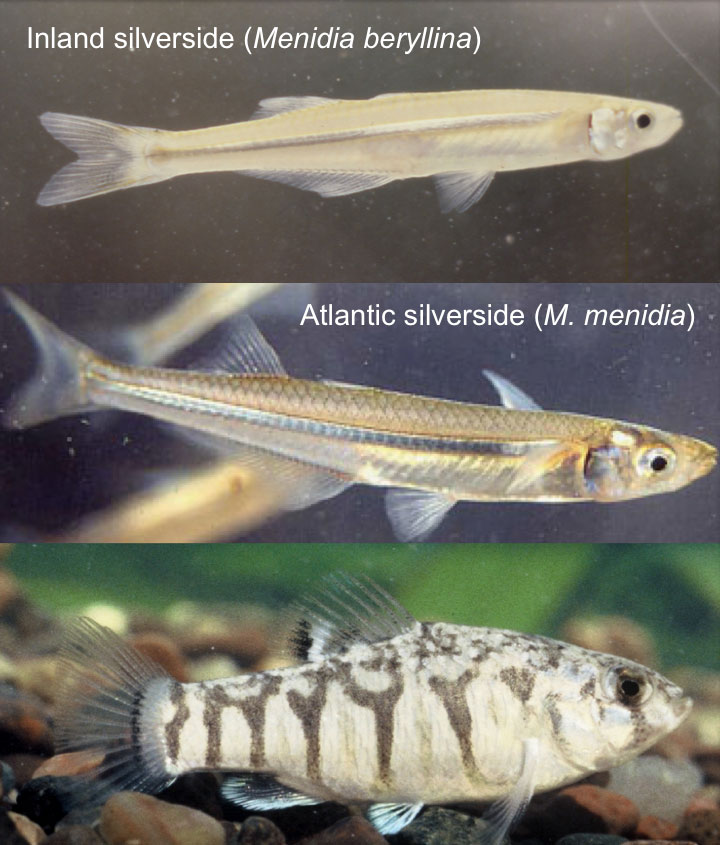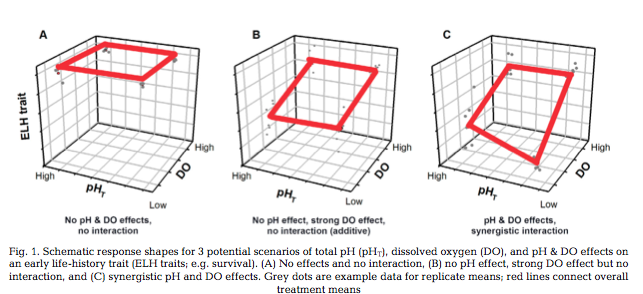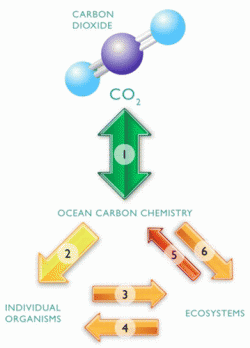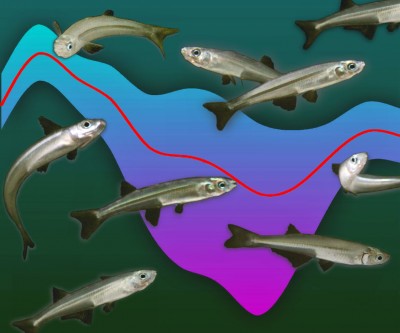Publication of Malvezzi et al. Evolutionary Applications (2015) “A quantitative genetic approach to assess the evolutionary potential of a coastal marine fish to ocean acidification”
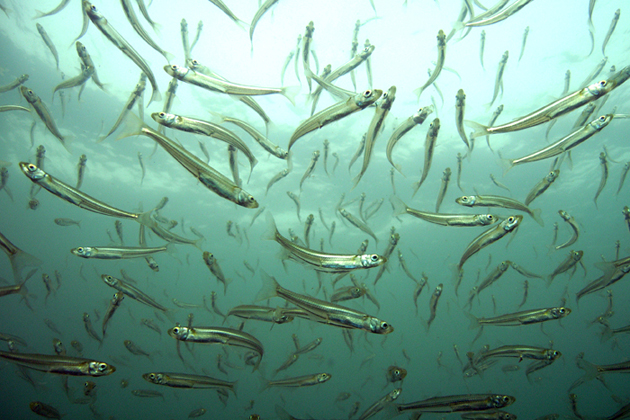
Originally posted on UConn Today, by Tim Miller
Over the next two centuries, climate change is likely to impact everything from industrial agriculture to the shape of our coastlines. The changing climate will certainly cause huge changes around the world, and the challenge is to predict exactly what impact those changes will have.
In the world of marine science, this means grappling with a process called ocean acidification. As human activity pumps carbon dioxide into the atmosphere, some of the carbon dioxide gets absorbed into the sea, which raises its acidity.
Scientists have been concerned about this for more than a decade, says Hannes Baumann, an assistant professor of marine sciences who studies the phenomenon in his lab at UConn’s Avery Point campus. “The fundamental question,” he says, “is whether or not organisms can adapt to this threat.”
That question is important, because although ocean acidification is happening, it is a slow process. Levels of carbon dioxide in the atmosphere have increased more than 50 percent since the beginning of the Industrial Revolution. They are expected to undergo another four-fold increase, but over the course of the next 300 years.
“Three hundred years is only five or six generations for whales or long-lived sharks,” says Baumann, “or 300,000 generations of single-celled organisms.”
Recent work has thus focused on whether or not species can evolve along with the ocean, adapting over time to the increasing acidity.
Measuring evolutionary potential
In order to answer that question, Baumann and his colleagues turned to a small but important fish, the Atlantic silverside, Menidia menidia. Common across the shallow waters of eastern North America, the silverside is an important food source for aquatic birds like egret and cormorant, as well as commercially important fish species like bluefish and striped bass.
The researchers’ goal was to measure the so-called “evolutionary potential” of this species. It was already known that high levels of carbon dioxide would kill many, but not all, Atlantic silverside larvae. The researchers wanted to know whether the likelihood of surviving had a genetic component: if fish that were related to one another were more or less likely to survive in the new environment.
“We were basically trying to answer the question: Can they evolve?” Baumann says.
His team approached the problem by capturing wild silverside from a beach in Long Island Sound, and raising several groups of their offspring in the lab, some under normal ocean conditions, and some in a more acidic environment.
They then tracked how long each of the fish lived, and analyzed their DNA, looking for what are called “microsatellites” – the same repetitive strands of DNA that are used in human paternity tests. The analysis revealed which fish were related to one another.
The team found that related fish had similar lifespans, suggesting that there is indeed a significant genetic component to survival in an acidic ocean. This means that the fish does have the potential to evolve, a finding which may have important ramifications for predictions about how the ocean environment will change with the changing climate.
Baumann, who recently joined the faculty at UConn after an appointment at Stony Brook University, was enthusiastic about the result, primarily because it demonstrates a method by which the evolutionary potential of other species can be measured.
“This is an experiment that can be performed in one generation,” he says. He is hopeful that the results will prove useful in predicting how oysters, sea urchins, and a host of other marine organisms will be able to cope with the changing ocean environment.
The research was first published Feb. 14 online, and will appear in the March issue of the journal Evolutionary Applications.
This work was made possible by grants from the National Science Foundation (NSF) and the National Oceanic and Atmospheric Administration (NOAA).
Web coverage: UConn Today | NSF | OceanBites | ScienceDaily | AAAS EurekAlert | EnvResearchWeb | Phys.org | ScienceWR
